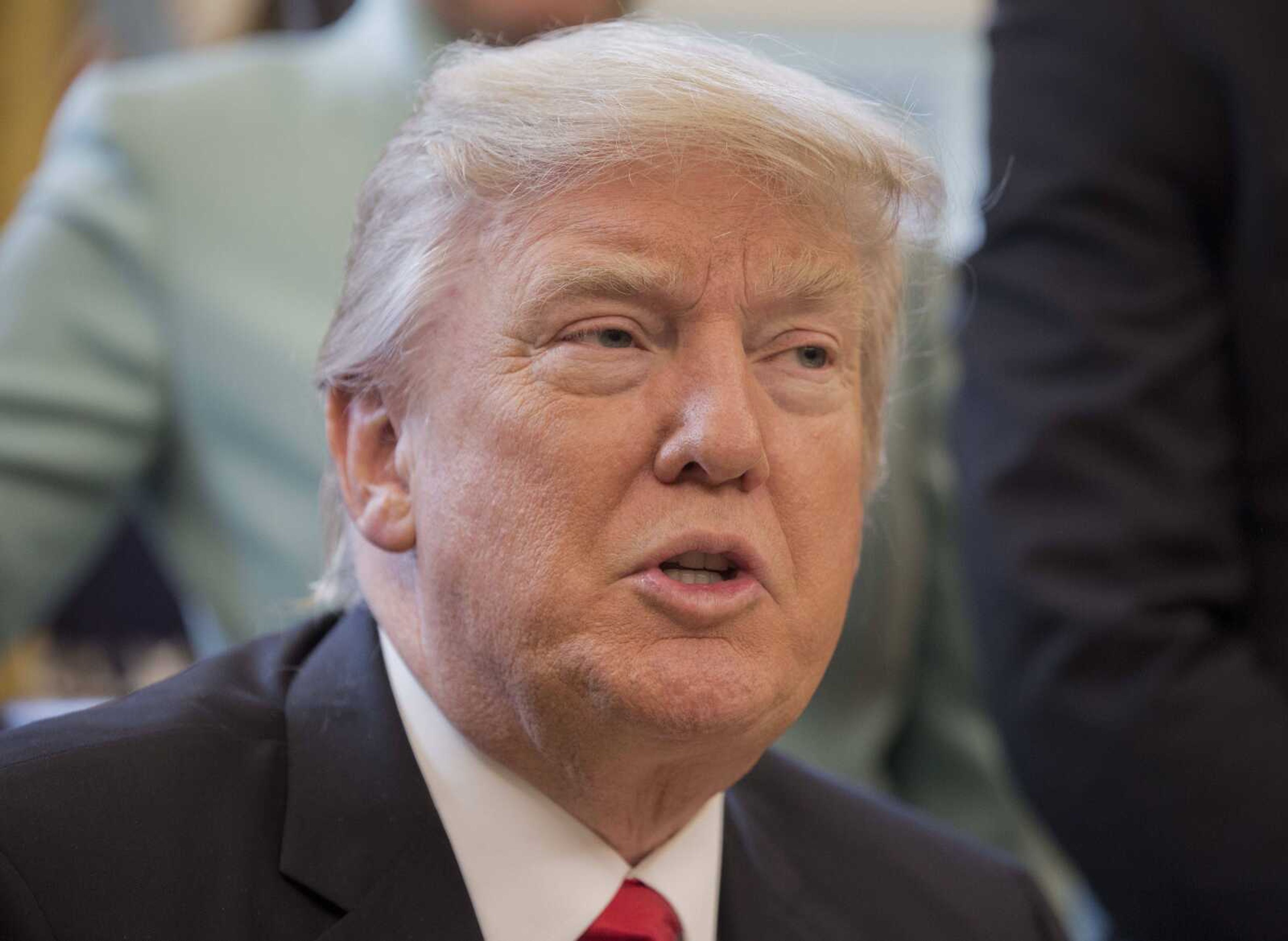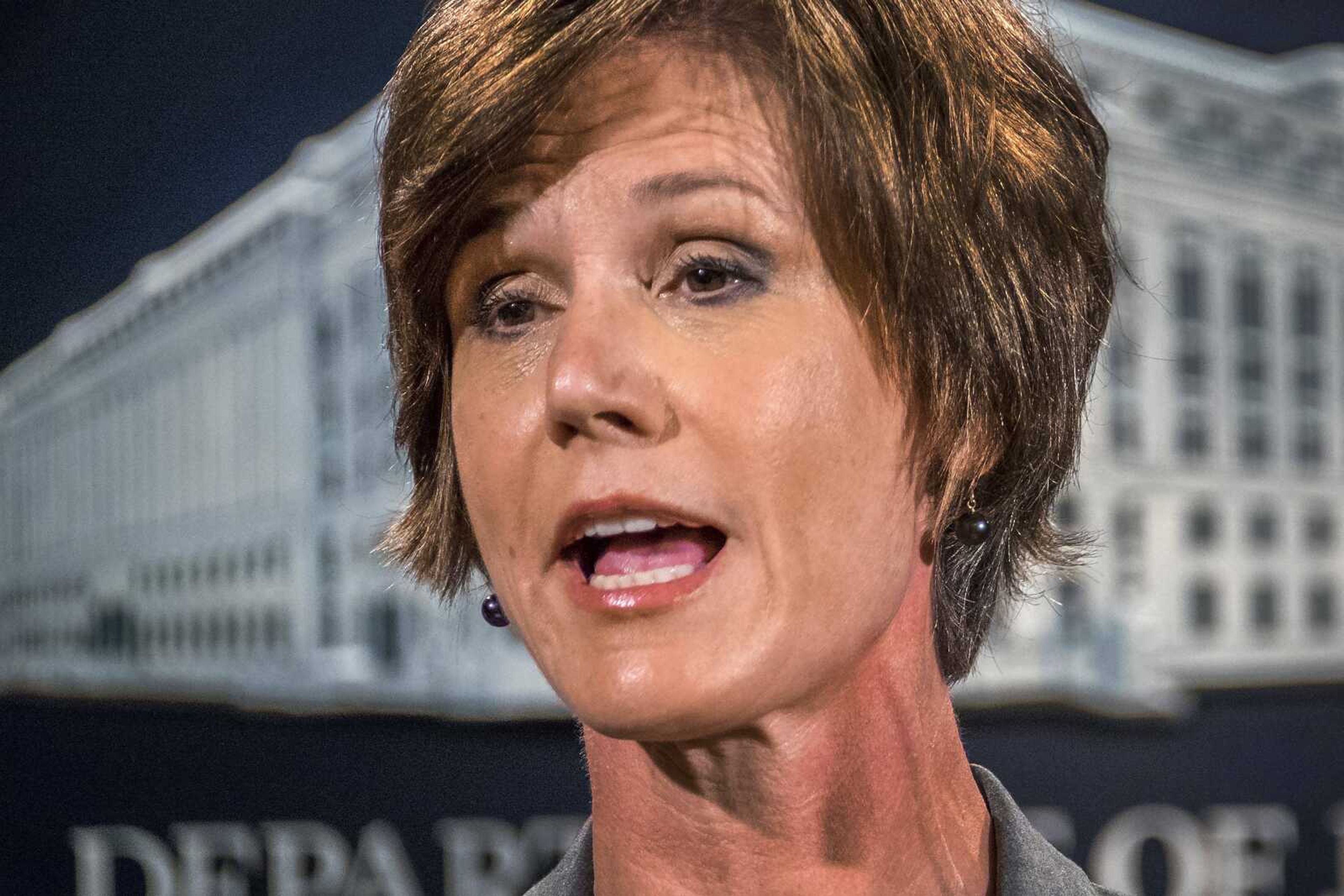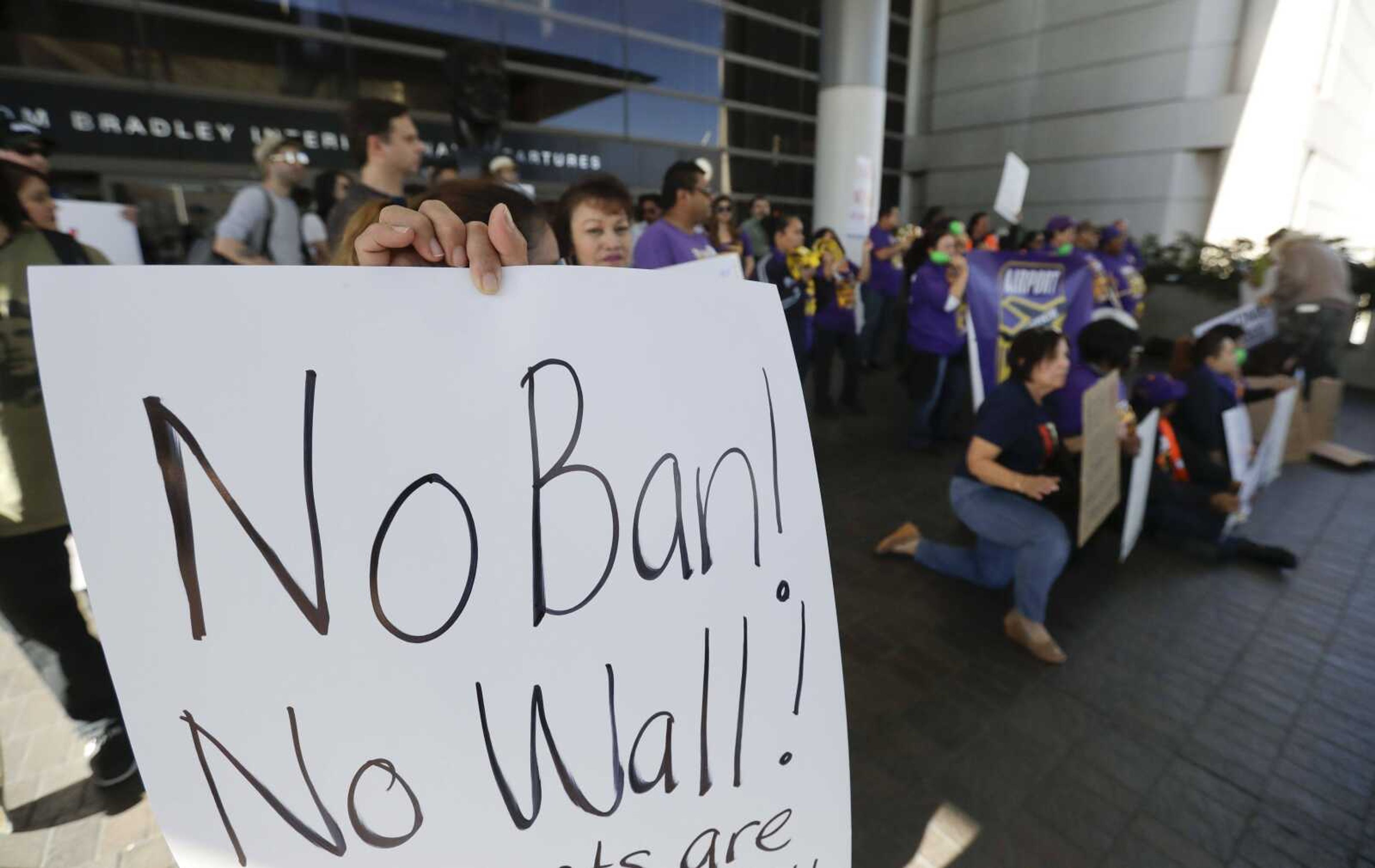Trump ousts acting attorney general as outcry grows
WASHINGTON -- Defiant in the face of an international backlash, President Donald Trump pressed into his second week in office defending his sweeping immigration ban -- then fired a Cabinet head who refused to enforce it. Acting Attorney General Sally Yates earlier Monday ordered Justice Department lawyers to stop defending the executive order, which temporarily suspends the U.S. refugee program and bars all immigration for citizens of seven majority-Muslim countries for 90 days...
WASHINGTON -- Defiant in the face of an international backlash, President Donald Trump pressed into his second week in office defending his sweeping immigration ban -- then fired a Cabinet head who refused to enforce it.
Acting Attorney General Sally Yates earlier Monday ordered Justice Department lawyers to stop defending the executive order, which temporarily suspends the U.S. refugee program and bars all immigration for citizens of seven majority-Muslim countries for 90 days.
By Monday night, she was out.
"The acting Attorney General, Sally Yates, has betrayed the Department of Justice by refusing to enforce a legal order designed to protect the citizens of the United States," the White House press secretary's office said.
Trump named Dana Boente, U.S. Attorney for the Eastern District of Virginia, to serve in Yates' place until Sen. Jeff Sessions, his permanent pick for the position, is confirmed by the Senate.

The Yates decision came as Trump pressed into his second week in office defending his immigration ban.
Protests persisted at major airports, and concern mounted from U.S. diplomats and members of his own party.
Trump denied his order was to blame for weekend chaos at the nation's airports, instead pointing to computer glitches, demonstrations and even the "fake tears" of Senate Minority Leader Charles Schumer.
The president shifted his focus, signing an executive action aimed at cutting regulations for small businesses and teasing his plans to unveil his Supreme Court pick tonight.
But the immigration ban remained at the forefront of Trump's first fortnight in the White House -- and officials were pondering more actions moving forward.

According to a draft document obtained by The Associated Press, Trump is considering an executive order that would target some immigrants for deportation if they become dependent on government assistance.
The draft order calls for the identification and removal "as expeditiously as possible" of any foreigner who takes certain kinds of public welfare benefits.
Such immigrants have been barred from the U.S. for the better part of a century, and they already can be deported.
The proposed order appears to signal a Trump administration effort to crack down on such welfare cases.
Another draft order being considered would make changes to several of the government's foreign-worker visa programs.
The White House did not respond to requests for comments on the draft orders.
Trump's immigration order prompted predecessor Barack Obama to wade into politics for the first time since leaving office.
A spokesman for the former president said Monday that Obama "fundamentally disagrees" with discrimination that targets people based on their religion.
Obama spokesman Kevin Lewis alluded to but did not specifically mention Trump's order, but he added Obama was "heartened" by the civil engagement being seen across the country.
Obama has said he will give Trump room to govern but will speak out if his successor violates basic U.S. values.
White House press secretary Sean Spicer said Trump's order was "about the safety of America," while the new president played down its impact, saying on Twitter that just 109 people were detained and held for questioning. White House officials have said that was during the first 24 hours after the ban.
But nearly 400 legal permanent residents were delayed upon their arrival back in the United States between the time the travel ban was signed and Sunday evening, according to a federal law enforcement official. All of those people were ultimately allowed back into the country.
The official said one other green card holder is now facing deportation after an extra background check done after the executive order was signed revealed a criminal conviction. Details of that person's case were not immediately available.
The official spoke on the condition of anonymity because the person was not authorized to publicly disclose details of the travel ban's implementation.
Trump's order, which also halts all refugee admissions for 120 days, does not address homegrown extremists already in America. And the list of countries it applies to -- Iraq, Syria, Iran, Sudan, Libya, Somalia and Yemen -- doesn't include Saudi Arabia, where most of the Sept. 11 hijackers were from.
Growing numbers of Republican lawmakers expressed concerns about Trump's action. Sens. Marco Rubio of Florida and Tim Scott of South Carolina said in a joint statement that "the manner in which these measures were crafted and implemented have greatly contributed to the confusion, anxiety and uncertainty of the last few days."
Washington state's attorney general said he would sue Trump, making Washington the first state to announce a legal action against the administration. Democrat Bob Ferguson was one of 16 state attorneys general who released a statement Sunday calling Trump's action "un-American and unlawful."
A number of U.S. diplomats also prepared a memo criticizing the order. In a "dissent cable" being drafted for State Department leadership, the diplomats said the ban runs counter to American values and will fuel anti-American sentiment around the world.
The cable originated in the State Department's Consular Affairs bureau, which handles visas.
Unfazed, Spicer retorted that if "career bureaucrats" have a problem with the order, "they should either get with the program or they can go."
The president also mocked Schumer, the New York Democrat who grew emotional as he called the ban "un-American." Said Trump: "I'm going to ask him who was his acting coach."
Trump blamed an airline glitch for much of the disorder at the nation's international airports that dominated the weekend's news. Though a Delta systems outage Sunday night led to departure delays and cancellations of at least 150 flights, the chaos started the day before as protesters packed some of the country's major airports.
Connect with the Southeast Missourian Newsroom:
For corrections to this story or other insights for the editor, click here. To submit a letter to the editor, click here. To learn about the Southeast Missourian’s AI Policy, click here.









